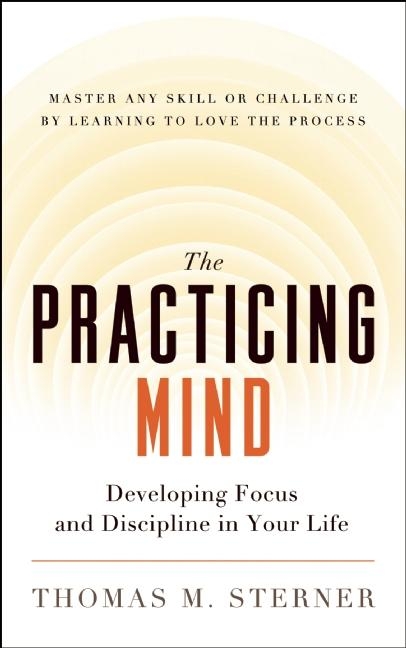Practice Makes Perfect Practice
Sally Haldorson
March 26, 2012
Listen to just about any interview with top-flight athletes, and you'll hear them say, regarding the motivation it takes to stay so focused, so intensely committed to their daily training, some version of: "It's not the results; it's the process. " Loving the process gets the figure skater to the cold rink at 5am before she has to get to school by 8am. Loving the process gets the star baseball player through his rehab assignment back down at Triple-A.
Listen to just about any interview with top-flight athletes, and you'll hear them say, regarding the motivation it takes to stay so focused, so intensely committed to their daily training, some version of: "It's not the results; it's the process." Loving the process gets the figure skater to the cold rink at 5am before she has to get to school by 8am. Loving the process gets the star baseball player through his rehab assignment back down at Triple-A. Loving the process has the 100m sprinter at the gym and on the track working the small stuff every day for the chance to compete for a mere 10 seconds in the Olympic Games.
Loving the process is all about withstanding repetitiveness, surviving disappointment, taking the small steps that can lead to big accomplishments. Athletes, musicians, experts of any ilk are devoted to their practice. For those of us who get up every morning not to train for a marathon but to tackle a day at our desks with a long list of to-dos and some long-term goals (often someone else's) to reach, loving the process is certainly something desirable if not easily attained. After all, whether you own your own business or you're a desk jockey working for a large firm, you realize that most days require focus and discipline in the face of, well, a whole lot of monotony.
Thomas M. Sterner's The Practicing Mind: Developing Focus and Discipline in Your Life (April 2012, New World Library) will help you "master any skill or challenge by learning to love the process." While The Practicing Mind isn't technically a business book, and might find itself shelved in the self-help section of any bookstore, Sterner is less interested in meditation than he is on sussing out how we learn and how to avoid the trap of giving up when we fail.
First, Sterner goes a little meta on us. "[W]e miss the point that the ability to develop any skill as swiftly as possible, with the least amount of effort, and even to experience inner peace and joy in the process, is in fact a skill itself, and one that requires constant practice to become an effortless part of who we are."
Practice (verb) the practice (noun) of staying present so that "you are always where you want to be and where you should be." This is the way to stay engaged and never preoccupied or discouraged by the end result. This is a difficult concept for many, especially those of us who were taught the value of visualization exercises or even the value of New Year's resolutions. How, we wonder, do we get anywhere if we are only paying attention to where we are at this moment? Isn't that sort of unambitious? Sterner says no. "This doesn't mean that you must lose touch with what you are aiming for. You continue to use the final goal as a rudder to steer your practice session, but not as an indicator of how you are doing." Sterner's ecclectic vitae itself seems the best evidence that he is a man who practices what he preaches and is not short of accomplishments. "With deliberate and repeated effort, progress is inevitable," assures Sterner.
From resisting our inclination to make judgments to detaching ourselves from destructive emotional reactions to recognizing and re-orienting some of our self-limiting habits, the advice in Thomas Sterner's The Practicing Mind is immediately applicable and will lead to improved performance whether you are on the golf course, at the piano, or in the conference room.


